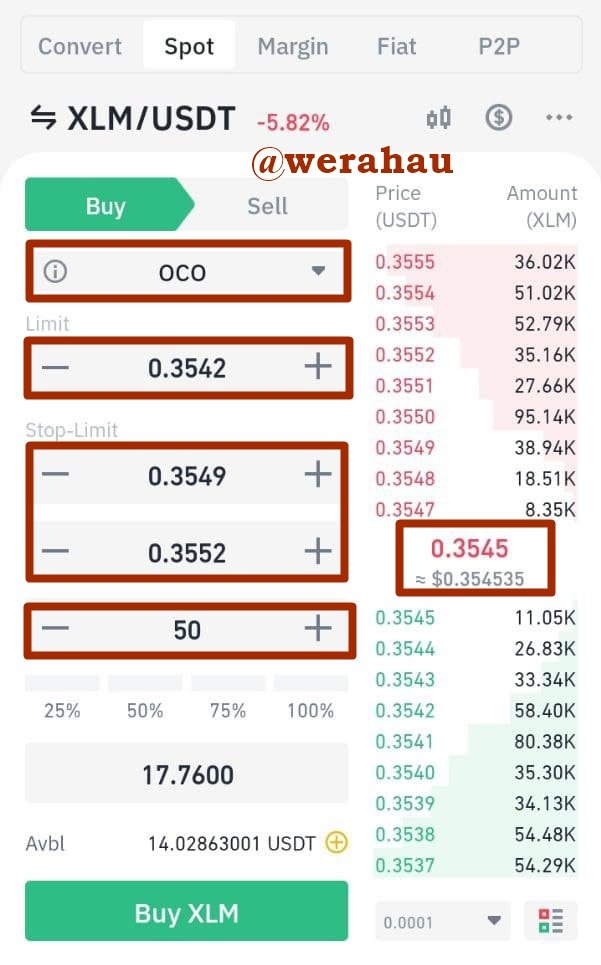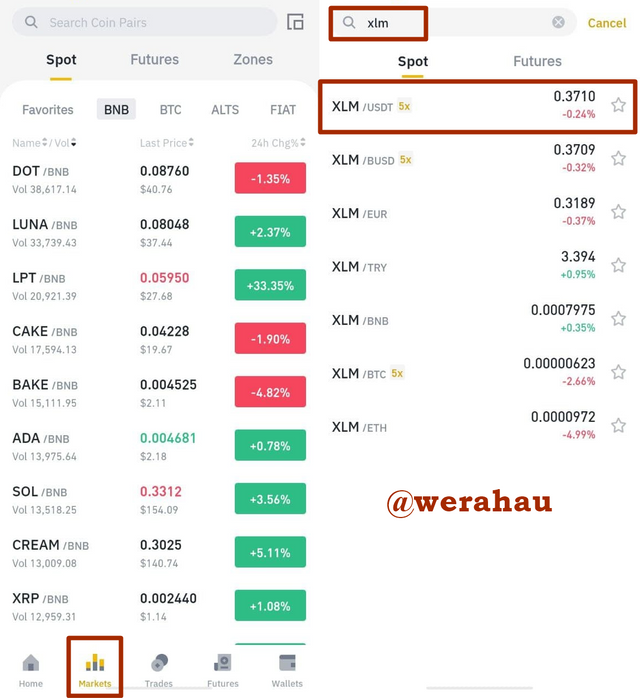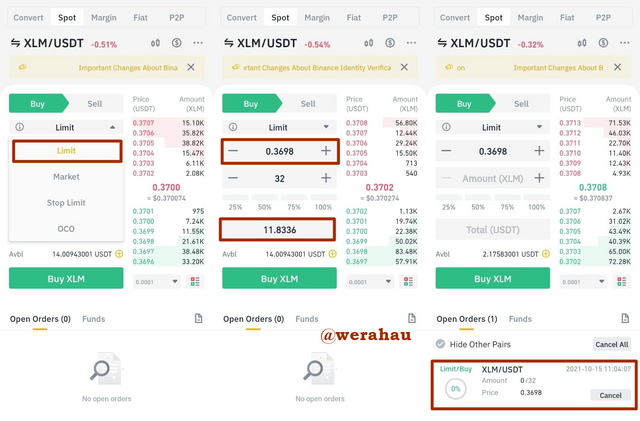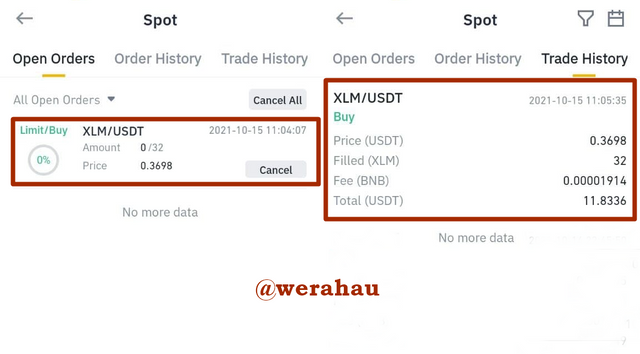[Trading Cryptocurrencies] - Crypto Academy / S4W6- Homework Post for @reminiscence01

Hello Steemian!!
In this article, I will discuss the homework provided by @reminiscence01 which is about trading cryptocurrencies.
Explain the following trading with its advantages and disadvantages
1. Spot Trading
Spot trading is a type of trade that is carried out in the spot market by fixing the price in the market. The market price in question will refer to the price that is in the market at any time period for which spot traders place market orders. Spot trading is also a type of trading that allows a trader to buy a cryptocurrency at a certain level and hold it for as long as he wants so that when the value of the asset goes up high he can sell the cryptocurrency for a higher profit. By this means that spot trading is a trade where the trader will have full ownership of the asset he owns and who can decide when to sell it at what level to sell it is also the trader himself.
The money used to make spot trades must be available in the trader's exchange account like Binance, Bittrex, Poloniex, etc. which means the spot trades to be made will use the funds that the traders have in their wallets in their exchange accounts.
Advantages of Spot Trading
Orders are executed instantly so that the transaction of buying or selling cryptocurrency will be completed quickly without wasting time.
Ownership held by the buyer on spot trading is full ownership, so it is the owner of the cryptocurrency who will decide when to sell the asset.
Spot trading has a low risk when compared to other types of trading.
Transactions that occur in spot trading are very transparent and can be seen by the trader or investor.
Disadvantages of Spot Trading
Profits can be lower if the trader doesn't have a large capital
Will experience a loss if the price of the cryptocurrency purchased has decreased in price.
In order to get a bigger profit, a trader or investor needs to hold the coin for some time until the price of the cryptocurrency he holds experiences a higher price increase.
2. Margin Trading
Margin trading is a trade made by a trader by borrowing a certain amount of capital from a third party to trade with a larger capital. Traders will be loaned capital from the exchange platform or broker that provides the loan and then the borrowed capital will be used as capital for trading so that the profits to be obtained will be greater. Margin trading will allow traders to trade in long buy positions and short sell positions, long buy positions are positions where the market is experiencing price increases and short sell positions are market positions when prices are falling.
Traders have a high risk commensurate with the payoff in making a transaction because if the trade goes according to plan, they will earn huge profits. Traders are required to enter a number of their values to stand as the basis on which risk leverage is being created. On the other hand, if the trade doesn't go according to plan, they will get a big loss. Traders can leverage 2x, 5x,10x, 100x to increase the profit percentage.
Advantages of Margin Trading
The trading process can be carried out even though it only uses a relatively small capital.
Traders can trade on two different trends (Bullish and Bearish).
Traders will be able to increase the amount of profit that will be obtained by taking advantage of loans from exchange platforms or brokers who lend loans for their capital.
The trader does not need to use all the capital he has for trading, because he can borrow from third parties and keep his savings in case.
Disadvantages of Margin Trading
It has a very high risk. If a trader incorrectly predicts the direction of the trend he can lose more than they invested.
The trader must have a reserve fund sufficient to pay the leverage if his trade does not go according to plan.
This type of trading requires a fairly high level of expertise, so it is not suitable for beginners.
3. Futures Trading
Futures Trading is a type of trading that involves buying and selling crypto assets in the future at prices predicted by traders. Future trading will involve predicting the future price of Cryptocurrencies from the moment the trade begins so traders will predict whether the market will be bullish or bearish. In this type of trading the trader will analyze the current price movement of a particular asset so that he can predict the future price of that crypto asset and then place his order at the future price he predicts.
In this trade the traders do not buy cryptocurrency assets that can be held for as long as they want, but they will buy contracts for the future which if the price movement is in accordance with the contract made then the traders will benefit, and if wrong then they will suffer losses.
This type of trading is certainly very risky because if someone makes a mistake in his prediction it will result in huge losses. So this type of trading is made especially for professional traders. Future trading gives room for the purchase of contracts with little capital by leveraging their value which allows the buyer or seller to close their trade but the time of the initial agreement. In order to avoid liquidation of assets, traders will make proper market analysis and use leverage that they think is reasonable.
Advantages of Futures Trading
Traders can trade on two different trends (Bullish and Bearish).
Traders will be able to increase the amount of profit that will be made by utilizing the leverage that has been set.
The trading process can be carried out even though it only uses a relatively small capital.
The trader does not need to use all the capital he has for trading, because he can borrow from third parties and keep his savings in case.
Disadvantages of Futures Trading
This type of trading is made for traders who are already professionals, so they must have sufficient experience
It has a very high risk. If a trader incorrectly predicts the direction of the trend he can lose more than they invested.
Future trading requires attention and focus as traders need to be online to monitor price movements in real-time.
The trader must have a reserve fund sufficient to pay the leverage if his trade does not go according to plan.

Explain the different types of orders in trading
1. Market Orders
Market Order is a buy and sell order that is made by traders by following the current market price so that the transactions carried out will be carried out quickly and the order can be fulfilled instantly. This process can occur because when a trader enters a price, the price he is making is the price that is being desired by the market, so that when the order is entered into the order book, there will be someone who directly matches the price the trader made and the transaction will be executed. immediate success.
If I give an example that I will buy STEEM with as much as 5 STEEM at a price of $1 and the market price is $1. When I enter my order in the order book, my order will be fulfilled immediately and I will immediately have the STEEM coins I want.
2. Limit Orders
This type of order is a given order made by a trader to make a buy or sell at a price that does not match the current market price. If the trader will enter a sell order then he will place a price higher than the market price so that the order will be fulfilled if the market price has reached the price he made. Meanwhile, if a trader places a buy order, he will place his order at a lower price than the market price so that his order will be fulfilled if the market price has fallen to the price he made.
Because orders from traders will not be fulfilled immediately, traders will be able to make profits, so enter these orders at the price they think is most suitable to be placed so that traders will be able to maximize profits.
If I give an example that I will buy STEEM with as much as 5 STEEM at a price of $0.9 and the market price is $1. So when I enter my order in the order book, my order will not be fulfilled immediately, I have to wait until the STEEM price in the market drops to $0.9 and then my order is fulfilled.
3. Stop Limit Orders
Stop Limit is a buy or sell order that is carried out by a trader by setting a stop price and a limit price when entering an order in the order book. In this type of order, the order is not made immediately let alone fulfilled because the trader provides stop and limit prices. The stop price is a trigger price that will make the system fill traders' orders at the limit price, so the orders made are not actually made if the market price has not touched the stop price. The process of buying and selling crypto assets on this type of order will take much longer time than the two types of orders that I have previously discussed.
If I give an example that I will buy STEEM with as much as 5 STEEM at a price of $0.8 and the market price is $1. When I enter a stop order on my order the price is $0.9 so if the STEEM price decreases to that price then my limit order which is at $0.8 will be automatically created.
4. Take Profit and Stop Loss Orders
Take Profit and Stop Loss orders are a type of order that is carried out by placing two types of prices where one price is the desired price and the other is the threshold price that can be accepted if you fail to make a trade. The desired price here is called Take Profit while the limit price is called Stop Loss, by setting these two prices traders can maximize profits and can immediately exit a trade if the price movement of the cryptocurrency being traded is not in accordance with the one being analysed.
When making Stop Loss and Take Profit prices, traders will usually use a Risk/Reward ratio which usually ranges from 1:1, 1:2, 1:4, etc. This ratio is determined by the existing risk profile of the traders themselves.
5. OCO
OCO is a type of order which is a combination of Limit Order and Stop Limit Order. OCO is a type of order where traders will make 2 orders at different prices, where if one order is fulfilled it will cancel the other orders that have been made. In this type of order, the order made by the trader is not immediately fulfilled because the trader provides several prices in the order so it is suitable for use if the crypto market is experiencing fairly high price movements.
If I give an example that I will buy STEEM with as much as 5 STEEM using the OCO order type, then I will place a price on the Limit Order and Stop Limit Order. If the STEEM price drops to touch the price on the Limit Order then the Stop Limit Order order will be cancelled, whereas if the STEEM price rises to touch the price on the Stop Limit Order then my order will be filled at the Stop Limit Order price and the order on the Limit Order will be cancelled.

How can a trader manage risk using an OCO order? (technical example needed)
When trading in the cryptocurrency market, many traders often fail in trading due to very large price changes in a short period of time, this happens because the level of volatility in the cryptocurrency market is very high. Therefore, one of the orders that can overcome the failure is an OCO order.
OCO is an order that can cancel other orders if one of the orders has been fulfilled, this is very beneficial for traders in increasing the percentage of profit and managing the risks that will be borne. As I have discussed that this OCO is an order which is a combination of a Limit Order and a Stop Limit Order, these two types of orders will work together in an OCO order so that risk management will be more controlled.

For example, please look at the picture of the order above. The above will place an order on the XLM/USDT market using an order of type OCO. The price of XLM in the market at that time was 0.3545 USDT while I wanted to buy 50 XLM at a cheaper price of 0.0542 USDT at that price I entered it in the Limit Order column.
Just in case, if the XLM price doesn't touch my Limit Order price, then I set 2 other prices, namely the Stop Price and the second Limit Price. In my stop order, I placed a price of 0.3549 USDT which if XLM increased to 0.3459 USDT then my second Limit order will be placed directly on the order book at 0.3552 USDT.
By using this OCO order I can do two different things in one type of order, namely maximizing profits while minimizing losses caused by price movements of XLM, so I don't need to monitor XLM price movements continuously.

Open a limit order on any crypto asset with a minimum of 5USDT and explain the steps followed. (Screenshots needed from any cryptocurrency exchange)
I will be using the Binance exchange to practice trading using Limit Orders.
In the market feature, I searched for the XLM coin market pair in the search column, and after several market options appeared, I chose the XLM/USDT market.

Because here I will make a purchase, I will have the Buy option and choose the Limit Order order type in the order selection column. After that I entered a Limit Order price at 0.3698 USDT and I will sell my 11.8336 USDT to get 32 XLM.

After that, on the open order menu, you will see a Limit Order which I still have to wait for because the price I entered is not the price on the market at that time. And after a while the price of XLM managed to go down and reached the price on the Limit Order that I had placed so that my order was successfully fulfilled.


Using a demo account of any trading platform, carry out a technical analysis using any indicator and open a buy/sell position on any crypto asset
Here I will be trading using a demo account on TradingView on the UNI/USD market. Before starting to trade I will do a technical analysis first using the help of the Average Directional Index (ADX) indicator.

In the chart, it can be seen that there is a price decline that occurred in the UNI/USD market which indicates a bearish trend is occurring in the market. Then the ADX indicator also gives a signal confirming that there is a trend reversal from Bullish to Bearish as indicated by the intersection of the DI- line with DI+ on the ADX indicator.

After that, I placed a Sell Entry order on that market which was at a price of $26.2534. In this trade I will use a Risk/Reward Ratio of 1:1 so I set a Stop Loss level at a price of $26.682 and Take Profit at a price of $25.818.
Reasons for choosing the UNI/USD market
The reason I chose Uniswap as a trading example this time is that this cryptocurrency is a cryptocurrency that has a very good project, Uniswap is a token swap platform on the Ethereum blockchain that allows users to swap among ERC-20 tokens. Uniswap coin is also a cryptocurrency that has entered the top 10 largest cryptocurrencies in the world so it is very suitable to be used as a trading and investment tool.
Reasons for choosing the Average Directional Index (ADX) Indicator
The main reason I chose the ADX indicator as my tool in trading this time is that ADX is an indicator that is able to show the strength of the trend in the market, if the ADX indicator line moves upwards and shows a large number, then the current trend is having a quite strong. In addition, the ADX indicator has 2 auxiliary lines (DI+ and DI-) which can show what trend is happening in the market.
By seeing the advantages of this ADX indicator, I decided to choose it as a trend confirmation indicator in the market, because I am also the type of trader who likes to enter a crypto market when there are special moments like this.

Conclusion
Trading on the cryptocurrency market is a trade that has a higher risk when compared to trading on other commodity markets, this is because the level of volatility in the cryptocurrency market is so large that many traders often lose their momentum in trading. However, with various types of trading and orders that already have many variations, traders can be more precise in making decisions in trading.
Each type of trading and type of order that have existed so far, we can see that each of them has advantages and disadvantages. All of these things are natural and it is the job of a trader to decide how to take advantage of these types of trades and orders in order to maximize profits and reduce trading failures.
CC:
@reminiscence01
Hello @werahau , I’m glad you participated in the 6th week Season 4 of the Beginner’s class at the Steemit Crypto Academy. Your grades in this task are as follows:
Recommendation / Feedback:
Thank you for participating in this homework task.
Thank you for the valuable feedback.